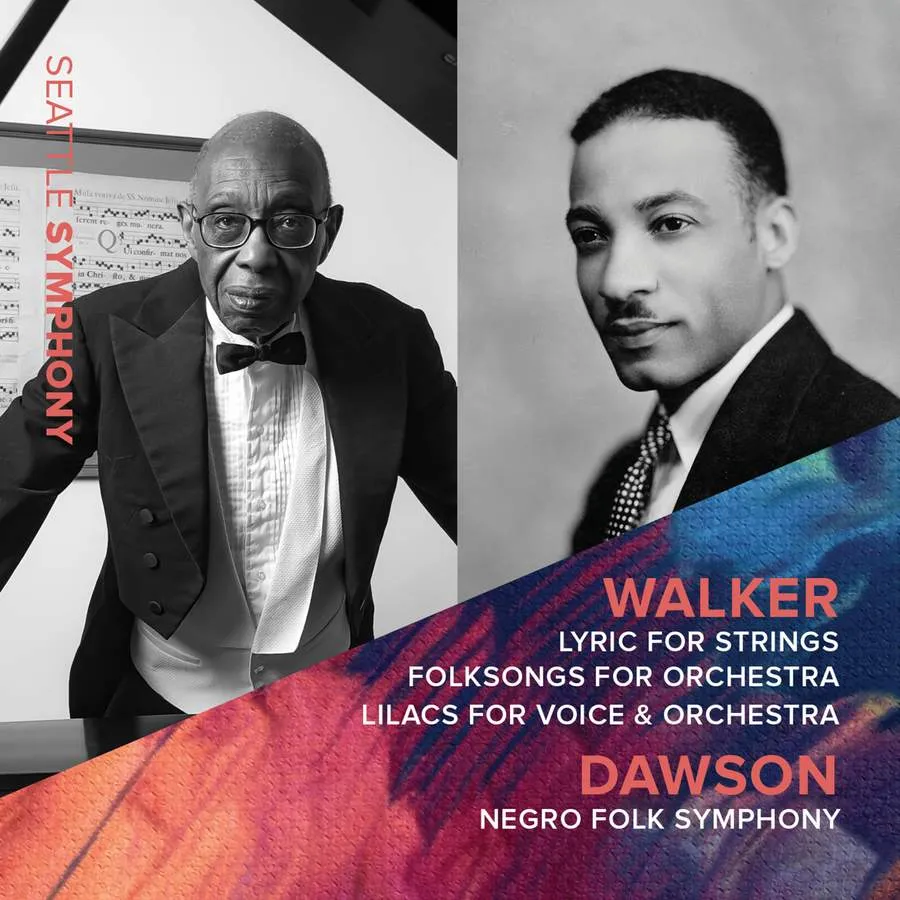
WL Dawson • G Walker G Walker: Lyric for Strings; Folksongs for Orchestra; Lilacs for Voice and Orchestra*; WL Dawson: Negro Folk Symphony** *Nicole Cabell (soprano); Seattle Symphony/Asher Fisch, **Roderick Cox Seattle Symphony Media SSM 1027 58:01 mins
George Walker (1922-2018) was once asked how he would feel were he to hear his music played in an elevator. His reply was telling: ‘I would be a little embarrassed because I would be the only one who would know it, probably.’ Like many Black composers, despite their achievements he and William L Dawson (1899-1900) are still only slowly gaining the wide audience they merit. This superb release from the Seattle Symphony reveals their contrasting yet complementary expressive eloquence.
Both composers write from the heart of African-American experience, skilfully deploying spirituals and religious idioms alongside jazz and Romantic – and, in Walker’s case, modernist – traditions. Here, the rich pathos of his opening Lyric for Strings(1946) carries through the programme, providing anchor and context for the ensuing, fluid emotional terrain. The orchestra rises with aplomb to the detailed and inventive writing. Swerving nimbly between Bartókian dissonance, languid bittersweetness and jaunty call-and-response, the spiritual-infused drive of Walker’s Folksongs for Orchestra (1990) lays a path to the intense, post-Lyric elegy of his Pulitzer Prize-winning Lilacs for Voice and Orchestra (1996).
Beautifully sung by Nicole Cabell, this evocative Whitman setting looks forward to spring as well as back in grief – leading smartly to Dawson’s warm, lucid Symphony. By turn rousing, sombre and sweetly melodic, its three, adroitly polyphonic movements embed spirituals in a host of ways, powerfully encapsulating Black American history through enslavement to freedom and hope.
Steph Power